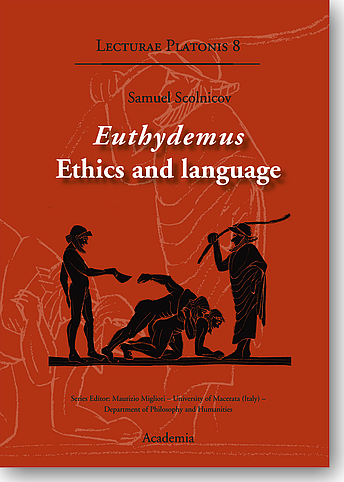Scolnicov
Euthydemus
ISBN 978-3-89665-590-5
Euthydemus was for a long time and until quite recently a neglected dialogue of Plato, almost by common accord treated as a motley collection of barely disguised sophistic fallacies. This book shows not only that the dialogue is to be taken seriously, but also that it is, in fact, a very important statement of Plato about the essential dialogical nature of his philosophy, his revolutionary views on language and on education, and the foundational role of ethics for his philosophical convictions.
These Lectures treat the platonic dialogue not so much as a literary form, but as a necessary central element in the interpretation of Euthydemus and its main theme. Along with Plato's concept of dialogue are considered his views on language, written as well as spoken, as basically not communicative, and his opposition to sophistic orthoepeia, the art of correct speech. Because of its central role in socratic-platonic dialectic, the sophistic claim about the impossibility of contradiction must be countered, not only for logical but foremost for ethical reasons. Soul, as the locus of contradiction turns out to be the most important element not only in Plato's ethics and philosophy of education (and that is not surprising), but also, and no less crucially, in his philosophy of language. In the last of these Lectures, new light is shed on the difference between the socratic method and sophistic eristic, that very difference that was not perceived by the anonymous listener at the end of the dialogue, and by many modern interpreters.
'Scolnicov's reading of this work is full of the insights of somebody who has worked primarily on Plato for a very long time, somebody free of the constraints imposed by working too consistently within a single western intellectual tradition, and somebody with a professional interest not just in philosophy, but also in education. If there is one short volume that I must recommend ahead of the present one it is of course the Euthydemus itself!'
(Prof. Harold Tarrant, University of Newcastle, Australia)


